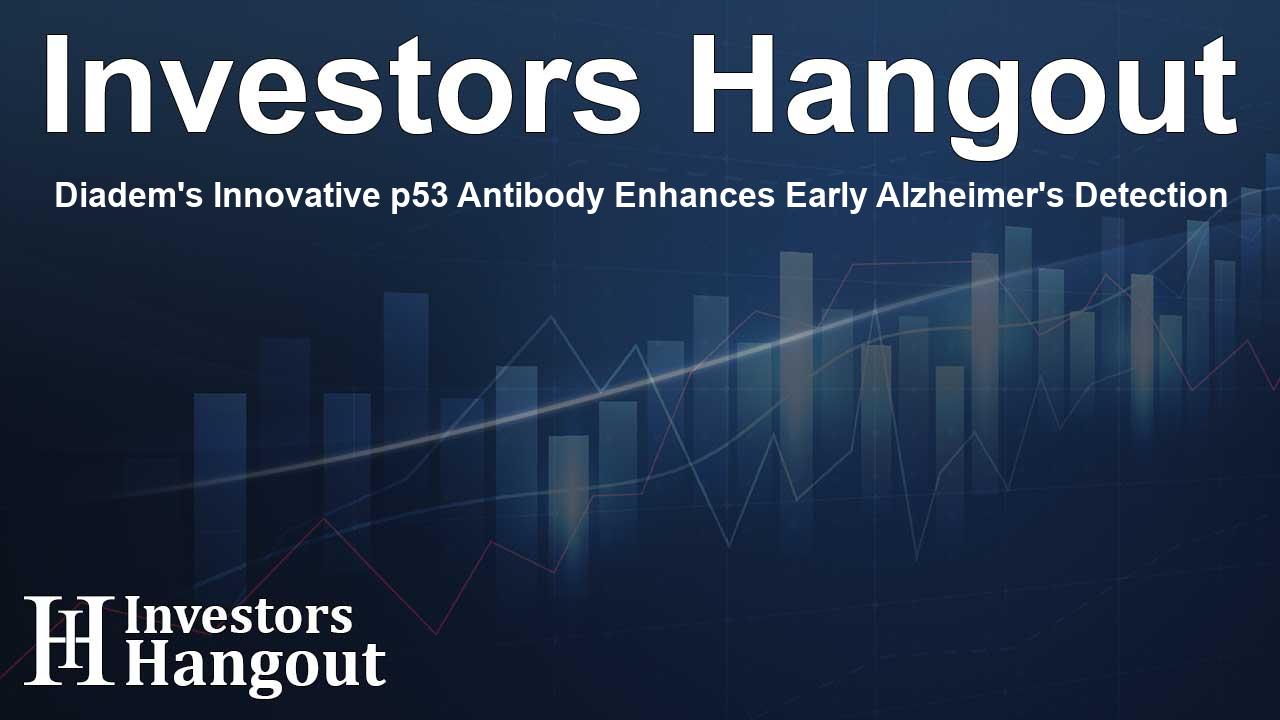Diadem's Innovative p53 Antibody Enhances Early Alzheimer's Detection

Significant Breakthroughs in Alzheimer's Diagnosis
At a recent conference, Diadem SpA showcased remarkable findings related to early Alzheimer's disease detection. Collaborating with esteemed researchers from the University of Texas Medical Branch, led by Professor Rakez Kayed, the study presented vital insights into the application of a p53-specific antibody known as U-p53AZ. The research specifically focused on how this antibody can uncover the presence of misfolded proteins linked to Alzheimer's, thus aiding early diagnosis.
Understanding the Role of U-p53AZ
One of the most challenging aspects of Alzheimer’s disease is managing cognitive decline during its early stages. This difficulty largely arises from the scarcity of reliable and affordable biomarkers. With the identification of U-p53AZ, researchers are now equipped with a prognostic tool that can track the progression of Alzheimer’s disease. Past studies indicated that measuring U-p53AZ levels in plasma could effectively predict cognitive deterioration, and this new study enhances those findings significantly.
Application of U-p53AZ in Brain Tissue
In this groundbreaking study, U-p53AZ was applied to brain tissue samples obtained from different Braak stages, which are used to represent the progression of Alzheimer's disease. The results were enlightening: the antibody showed a strong affinity for misfolded p53 proteins in Alzheimer’s tissues while displaying minimal interaction with healthy brain samples. This distinction underscores the antibody's potential as a diagnostic tool.
Linking p53 Misfolding and Tau Pathology
Co-staining these samples with phosphorylated tau, a well-known marker of Alzheimer's, highlighted a profound association between the misfolding of p53 and tau pathology. This connection sheds light on how these two factors may interplay in the progression of Alzheimer's disease, suggesting that targeting this interaction could lead to innovative diagnostic and therapeutic strategies.
Expert Insights from the Research Team
Professor Rakez Kayed expressed the importance of these findings, stating, "The co-localization of misfolded p53 with phosphorylated tau suggests a mechanistic interaction that warrants further investigation, particularly as a target for early diagnostic intervention." His insights testify to the potential of these findings in shaping new approaches for improving Alzheimer’s disease diagnostics.
U-p53AZ's Clinical Potential
Dr. Sam Agus, Chief Medical Officer at Diadem, emphasized how U-p53AZ identifies a specific conformation of p53 tied to Alzheimer’s disease. He noted, "Our results demonstrate that U-p53AZ not only identifies a conformation-specific form of p53 linked to Alzheimer's disease but also correlates with disease severity through Braak staging." This correlation positions U-p53AZ as a promising tool for diagnosing Alzheimer's at various stages.
About Diadem SpA
Diadem SpA is at the forefront of developing diagnostic solutions aimed at addressing Alzheimer’s and other neurodegenerative diseases. Based in Milan, Italy, the company prioritizes early detection methods that significantly enhance patient outcomes and provide hope for individuals battling these debilitating conditions.
For additional inquiries, please contact:
Diadem:
Michael Rasche
CEO
Email: Contact Us
Frequently Asked Questions
What is the significance of U-p53AZ in Alzheimer's research?
U-p53AZ is crucial as it serves as a biomarker for detecting misfolded p53 proteins associated with Alzheimer's, enhancing diagnostic capabilities.
How does U-p53AZ improve early detection of Alzheimer’s?
By identifying specific conformations of p53 linked to the disease, U-p53AZ provides reliable markers for early diagnosis before severe symptoms appear.
What are the potential clinical applications of U-p53AZ?
The antibody can be employed in diagnostic settings to distinguish between Alzheimer's-related p53 misfolding and normal protein conformations.
Who led the research on U-p53AZ?
The study was led by Professor Rakez Kayed from the University of Texas Medical Branch, indicating collaboration with Diadem SpA.
What are Diadem's plans for future research?
Diadem aims to explore the mechanistic interactions between misfolded p53 and tau proteins to develop new diagnostic and therapeutic strategies for Alzheimer’s disease.
About Investors Hangout
Investors Hangout is a leading online stock forum for financial discussion and learning, offering a wide range of free tools and resources. It draws in traders of all levels, who exchange market knowledge, investigate trading tactics, and keep an eye on industry developments in real time. Featuring financial articles, stock message boards, quotes, charts, company profiles, and live news updates. Through cooperative learning and a wealth of informational resources, it helps users from novices creating their first portfolios to experts honing their techniques. Join Investors Hangout today: https://investorshangout.com/
Disclaimer: The content of this article is solely for general informational purposes only; it does not represent legal, financial, or investment advice. Investors Hangout does not offer financial advice; the author is not a licensed financial advisor. Consult a qualified advisor before making any financial or investment decisions based on this article. The author's interpretation of publicly available data shapes the opinions presented here; as a result, they should not be taken as advice to purchase, sell, or hold any securities mentioned or any other investments. The author does not guarantee the accuracy, completeness, or timeliness of any material, providing it "as is." Information and market conditions may change; past performance is not indicative of future outcomes. If any of the material offered here is inaccurate, please contact us for corrections.









